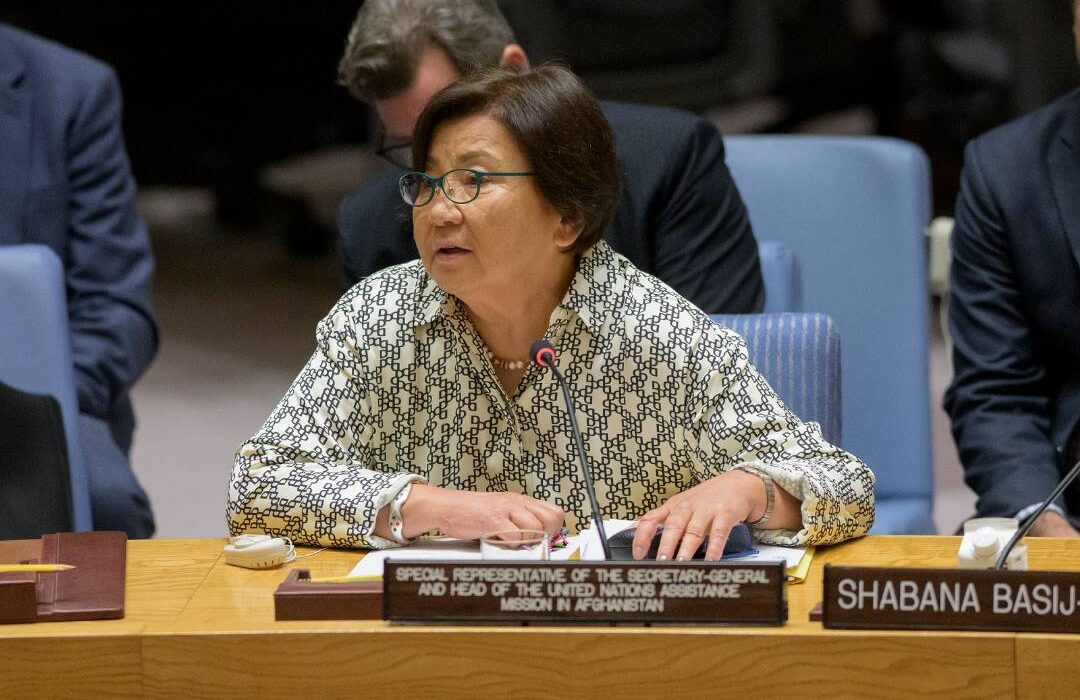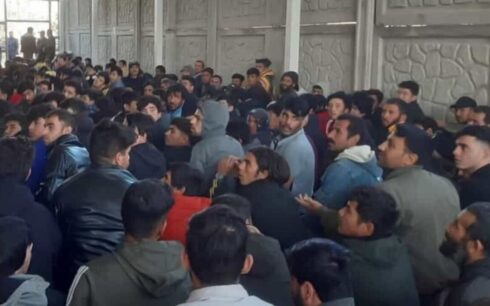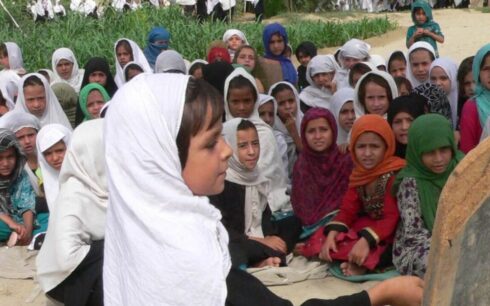The United Nations Assistance Mission in Afghanistan (UNAMA) continues to face a “complicated situation” due to the ban on women working for the organization, said the Secretary-General’s Special Representative for Afghanistan.
Addressing a UN Security Council briefing on Afghanistan on Wednesday, Roza Otunbayeva said more than two months after the April 5 ban was imposed, the UN has still not been given any explanations by the Taliban for the ban nor any assurances that it will be lifted.
She said their national female staff continue to work from home, as do their non-essential male staff. In addition, she said: “We are steadfast: female national staff will not be replaced by male national staff as some de facto authorities have suggested.”
Otunbayeva said the Taliban ask to be recognized by the United Nations and its members, “but at the same time they act against the key values expressed in the United Nations Charter.”
“The de facto Taliban authorities must rescind these bans to enable the United Nations to continue its full support to the people of Afghanistan,” she added.
The Security Council also heard that one “unfortunate effect of these bans is that they obscure some of the other more positive
achievements that have taken place under the de facto authorities.”
According to her, one example was the growing evidence that the Taliban’s ban on opium cultivation, announced in April last year, has been effectively enforced in many parts of the country. According to initial media reports, cultivation of opium has significantly decreased, she said.
In addition, the economy remains stable, albeit at a low equilibrium; inflation is declining; and the exchange rate remains steady, she said, attributing this in part to the reduction of high-level corruption.
However, she pointed out that while Afghanistan remains the world’s largest humanitarian crisis, the sharp drop in funding for aid is expected to affect the weekly UN cash shipments required for humanitarian operations.
She said as funding declines, the cash shipments are also expected to decrease. Since late 2021, the UN has taken delivery of on average $40 million dollars a week – which has been flown into Kabul and then paid over to a commercial bank.
Otunbayeva said a decrease in cash aid into the country could have a “negative effect on monetary stability.”
The Security Council heard that politically, the Taliban remains insular and autocratic. “The composition of the de facto government is entirely male, and almost totally derived from the Taliban’s Pashtun and rural political base,” she said.
While some efforts have been made towards consultation at the local level, “the general trend is of centralization of power by an
unaccountable central authority,” she stated, adding that “there
is a widespread concern that a lack of inclusivity and participatory governance will lead to instability.”
Otunbayeva told the council members that while the end of the armed conflict greatly reduced the number of civilian casualties, since the Taliban came to power, the United Nations Mine Action Service in Afghanistan estimates around one hundred casualties per month from unexploded ordnance. “Unfortunately, the de facto Directorate of Mine Action Coordination has suspended its cooperation with the United Nations for technical reasons that we are trying now to resolve.
“Without UN support, the sector operates with limited technical capacity and monitoring,” she said, adding that discussions continue with the Taliban “to lift the suspension as soon as possible”.
Otunbayeva told the Security Council that she holds regular discussions with the Taliban and is “blunt about the obstacles they have created for themselves by the decrees and restrictions they have enacted, in particular against women and girls.
“We have conveyed to them that as long as these decrees are in place it is nearly impossible that their government will be recognized by members of the international community,” she said.
According to her, the decrees “are highly unpopular among the Afghan population” and they have cost the Taliban “both domestic
and international legitimacy, while inflicting suffering on half of their population and damaging their economy.”
In conclusion, she said while UNAMA has a mandate to help the people of Afghanistan, they would be able to “do much more … if the Taliban rescinded its punishing restrictions on its female
Population.”





